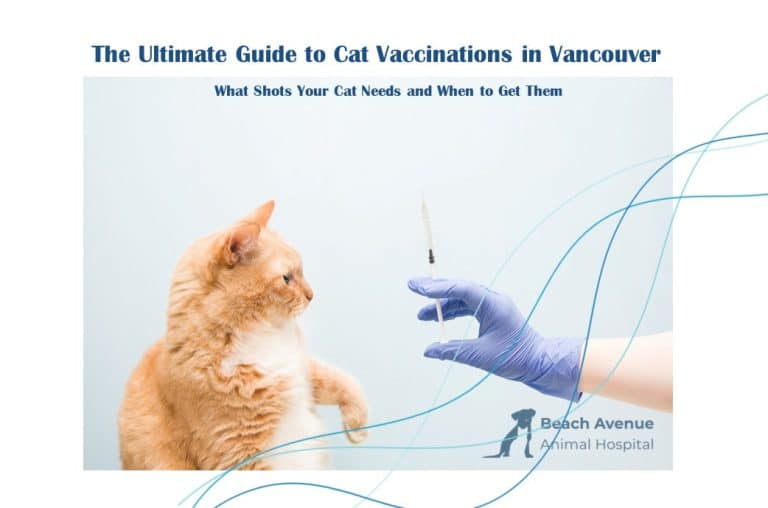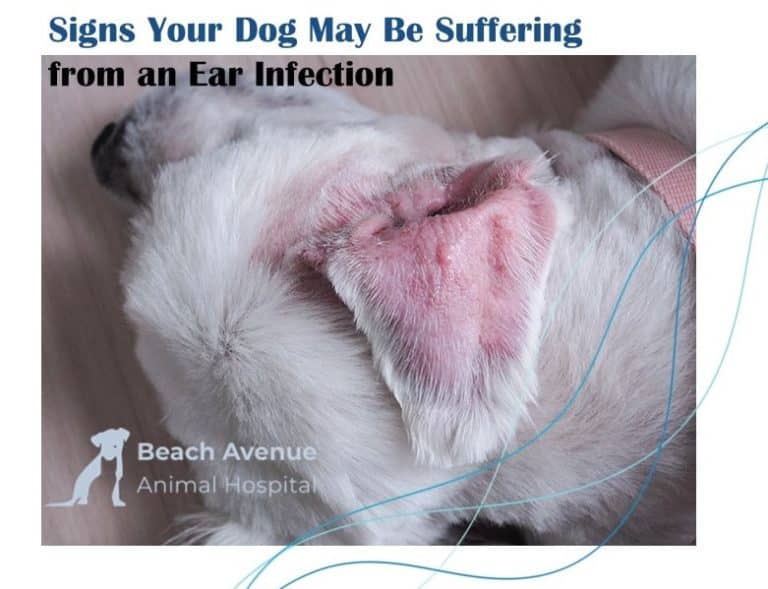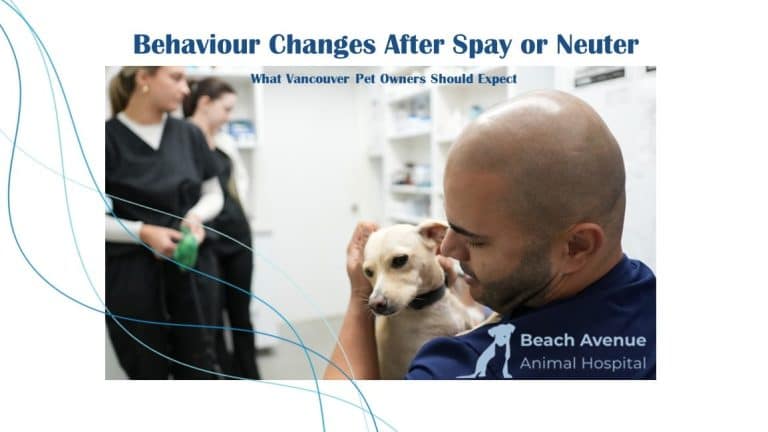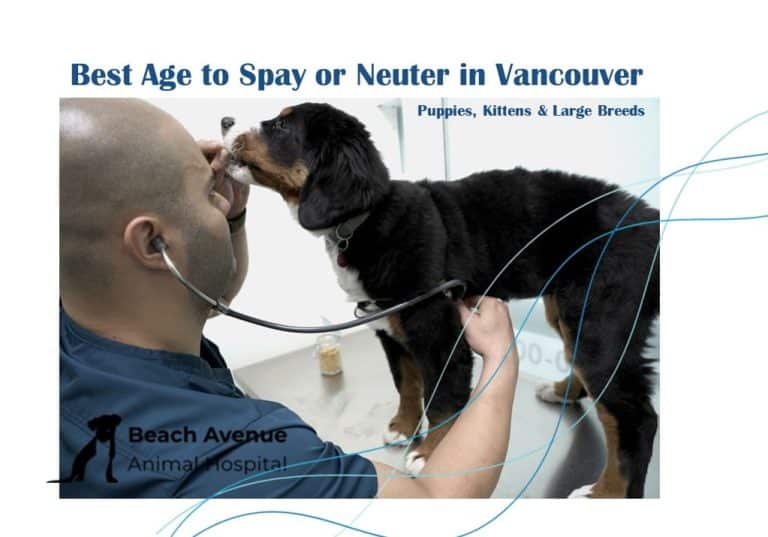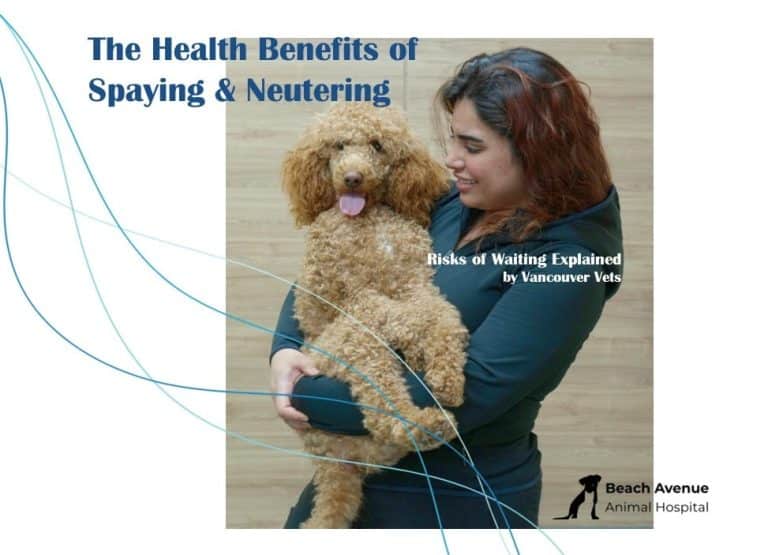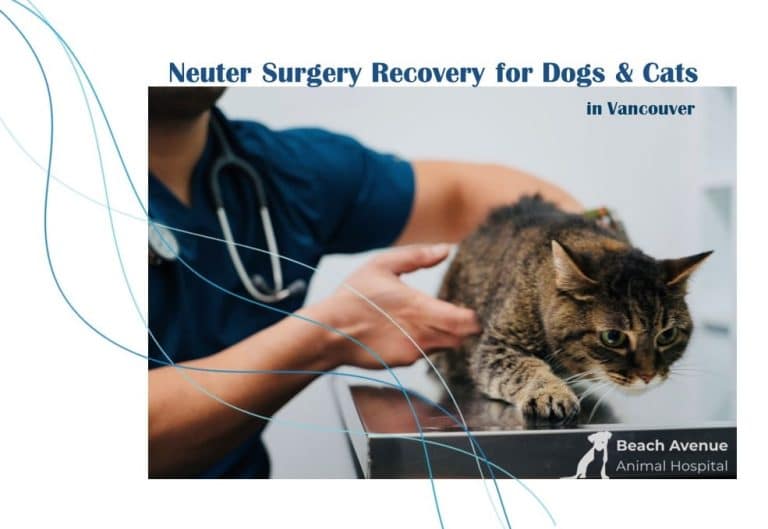Obesity Awareness: Being Overweight Can Hurt Your Pet
Images of chubby kitties and roly-poly pups may seem cute, not concerning, but overweight pets are a serious matter. Even just a few extra pounds or kilograms can, unfortunately, cause many health issues for our pets.
More than half of cats and dogs in Canada may be overweight or obese.*
If your pet is carrying extra weight, you’re not on your own. We’ll work with you to create a weight-maintenance plan to help get your pet get back in shape!
So How Do I Know If My Pet Is at a Healthy Weight?
Each pet has an ideal weight range that he or she should fall within, based on individual factors like breed and gender. Ideal weight varies, even among similarly sized dogs or cats.
Body condition score (or BCS) is another way we determine a pet’s ideal size and shape. We assign each pet a BCS of 1 to 9, with a score of 1 to 3 being too thin and anything over 6 being overweight or obese. The ideal we’re aiming for is in the middle, at a 4 or 5.
Check out these charts from the World Small Animal Veterinary Association that show ideal body conditions for healthy dogs and cats. When you bring your pet to Beach Avenue Animal Hospital for a visit, we’ll show you how to gauge your pet’s ideal weight and BCS.
For now, take a moment to do this quick check:
- You should be able to feel your pet’s ribs if you run your fingers across the sides of your pet’s chest.
- Looking from the side, you should also be able to see a “tuck-in” or upward slope from your pet’s chest toward the hind end (on dogs).
- From the top view, your dog or cat should have a visible waist behind the ribs.
- If you can see your pet’s ribs or the waist is very prominent, however, then your pet may be too thin.
What Are the Health Risks for Overweight Pets?
Pets who are overweight or obese have a higher risk of developing:
- Arthritis
- Other joint/orthopedic and gait issues
- Back problems
- Certain cancers
- Diabetes
- Gastrointestinal issues
- Heart disease
- High blood pressure
- Kidney disease
- Liver disease
- Lowered immune function
- Respiratory problems
- Skin issues
- Surgical complications
- Urinary tract blockage
Even scarier, cats and dogs carrying extra weight may not live as long as those at a healthy weight.
The good news is that if your pet is at a healthy weight or gets back to an ideal BCS, you’ll be giving your pet the gift of a better quality of life, less risk for certain diseases, and quite possibly a better chance of living longer.
That’s why we strongly recommend that you bring your pet in for an obesity management consultation, where your Beach Avenue veterinarian will examine your pet and provide an individualized recommendation for weight, as well as activity and nutritional needs.
Could My Pet Just Have an Underactive Thyroid?
It is possible. Your Beach Avenue veterinarian will check your pet to rule out any medical causes that could be contributing to weight gain. However, most pets who are overweight have simply been eating more calories than they’ve burned.
How Can We Help Your Pet Lose Weight or Keep Weight Off?
Following an appropriate, nutritionally balanced prescription diet recommended by your veterinarian is a good start toward keeping your pet at a healthy weight. However, dogs’ and cats’ nutritional needs change over time, based on life stage, health status, and activity level, so nutritional recommendations may need to be updated. We encourage all our clients to bring their pets in for regular weight checks and dietary assessments, so we can discuss what’s changed with you and your pet and make adjustments as needed.
After we confirm that your pet doesn’t have any underlying medical conditions, together we’ll come up with a weight management plan that includes practical and achievable nutrition and exercise goals for your pet. We can also give you advice on helping to keep your pet feeling full while losing weight.
We’ll focus on creating specific steps to decrease your pet’s caloric intake and increase his or her energy expenditure through activity and exercise. This may mean:
- Switching your dog or cat to a recommended prescription diet that will help your pet feel full and provide complete and balanced nutrition, but fewer calories.
- Reducing the number of treats your pet gets (while making sure your pet doesn’t feel deprived).
- Having regular weigh-ins to ensure that your pet is losing an appropriate amount of weight (we don’t want pets to lose weight too quickly).
- Making sure your pet is getting enough exercise, either through walks or playtime. Combined with a diet change, many dogs can start losing weight by walking twice a day for 10 to 20 minutes, and most cats can successfully shed pounds by playing actively for 5 or 10 minutes two or three times a day. Of course, every pet is unique, and we’ll give you personalized recommendations just for your pet.
When your pet visits Beach Avenue Animal Hospital for check-in, we’ll make sure your pet is staying on the right path and help keep you motivated.
Book an appointment with us today to start your pet on a healthier path!
Reference
*According to an estimate from Dr. Jim Berry, past president of the Canadian Veterinary Medical Association. From Korducki K. Weight watchers: Canada’s pet obesity problem. Readers Digest Canada. https://www.readersdigest.ca/home-garden/pets/weight-watchers-canada-s-pet-obesity-problem. Accessed June 4, 2021.


